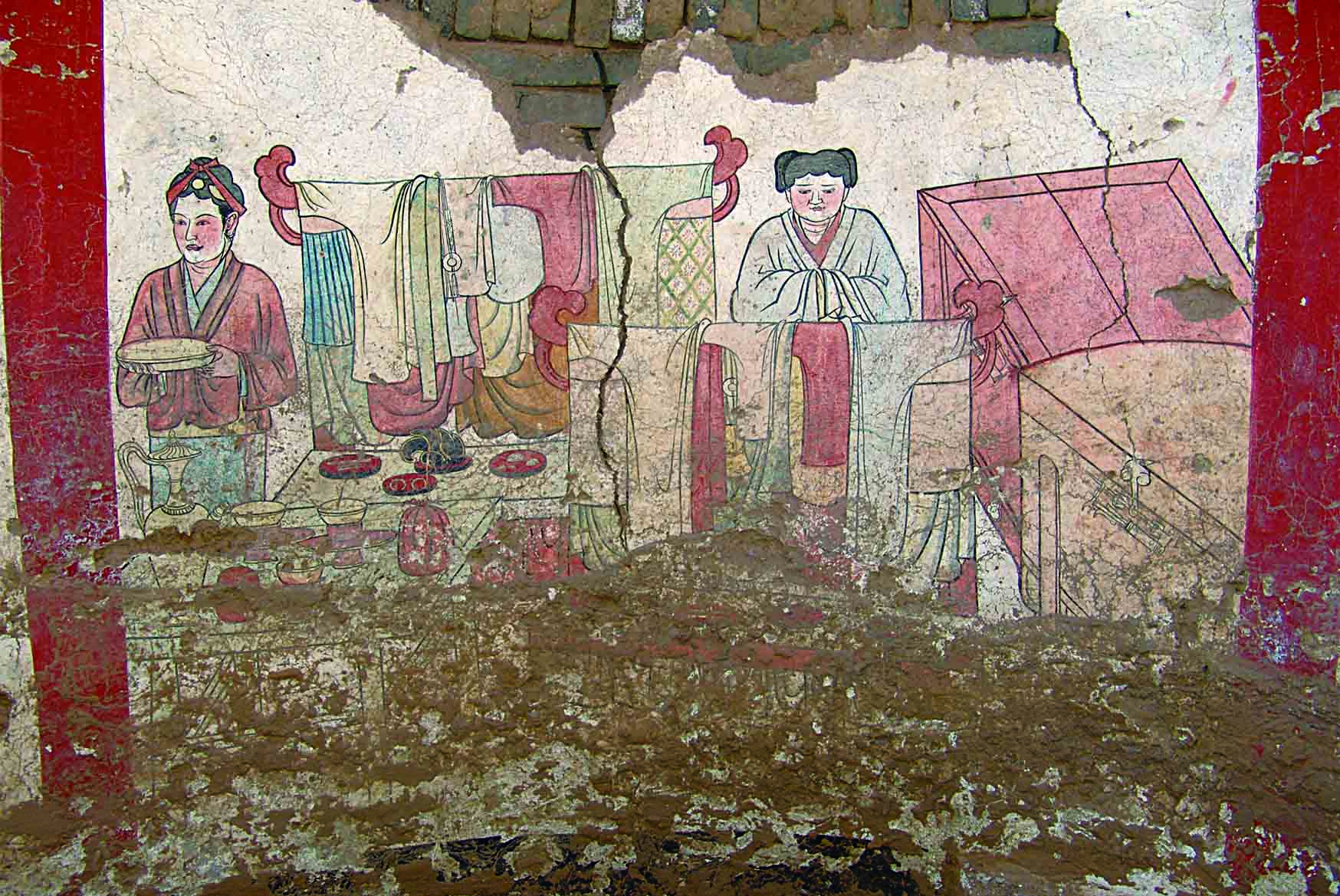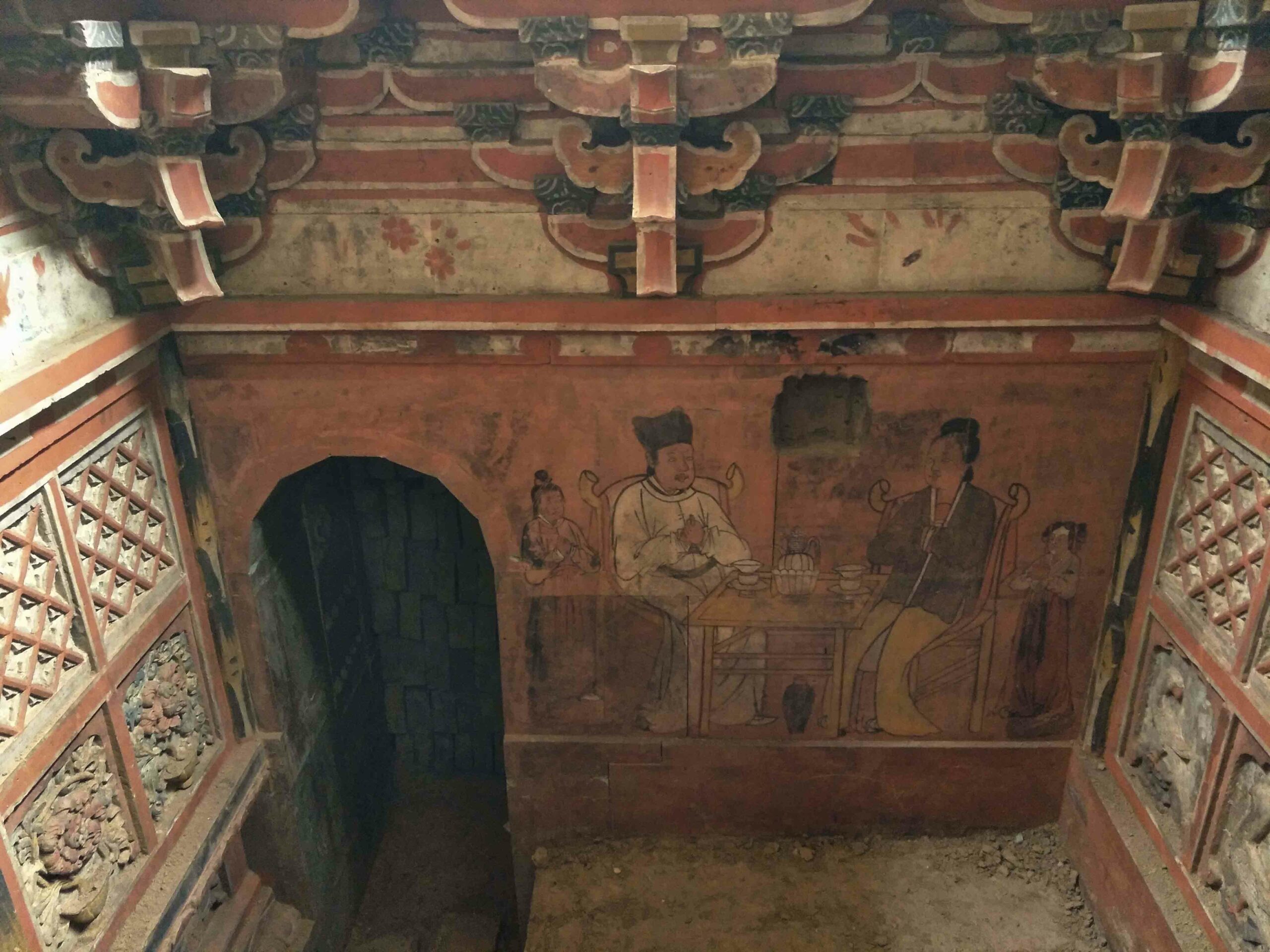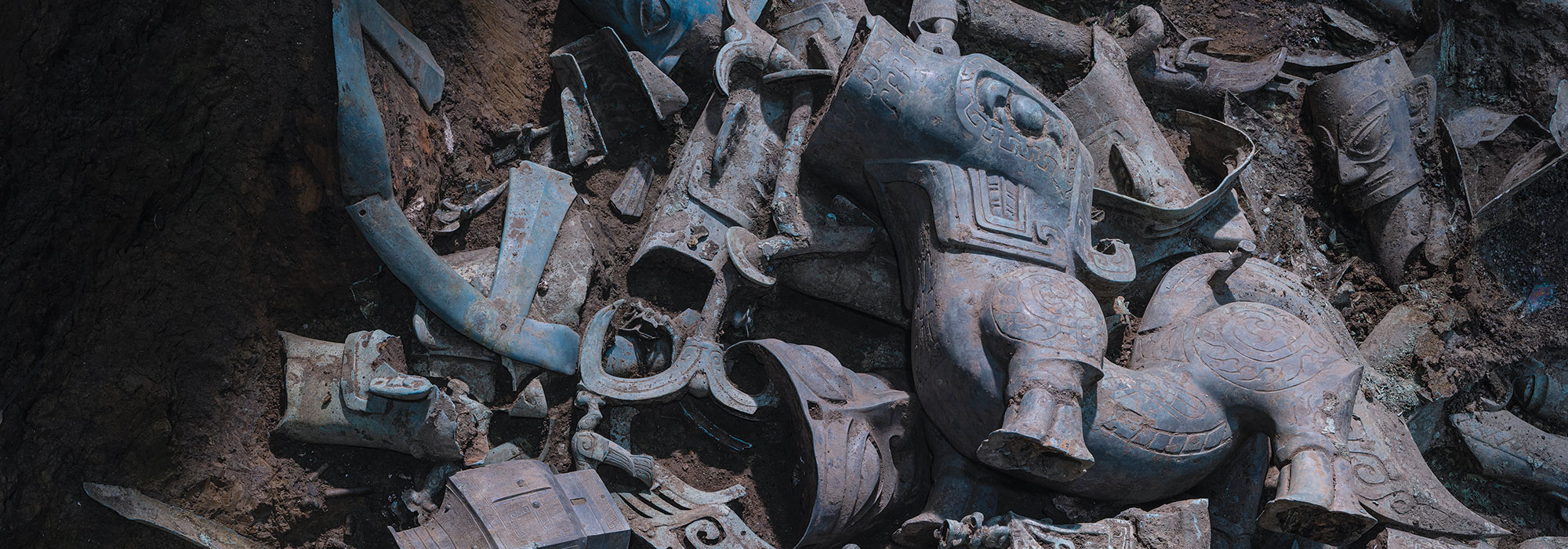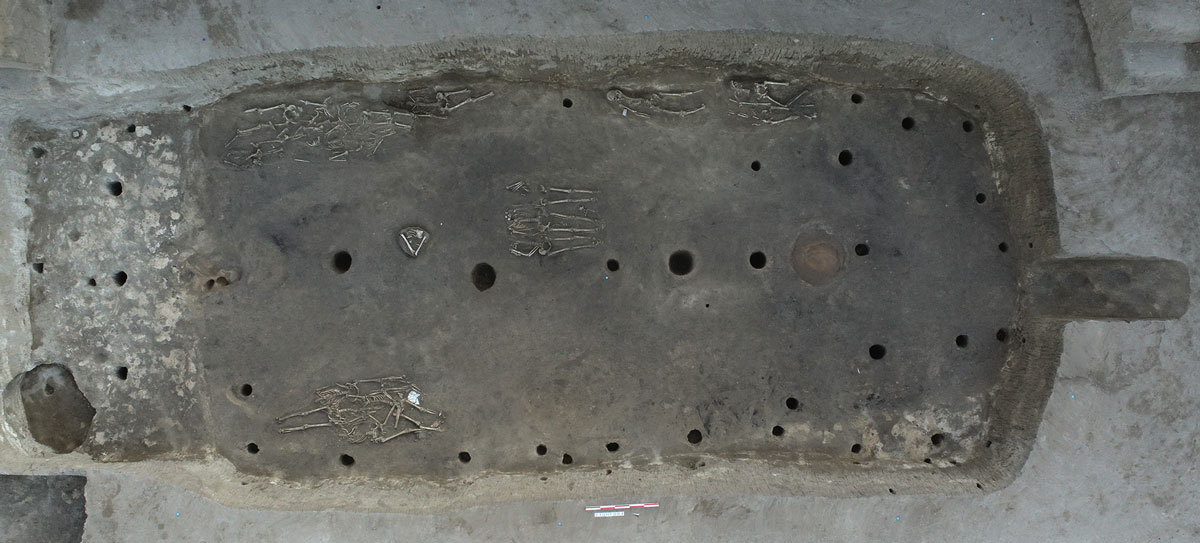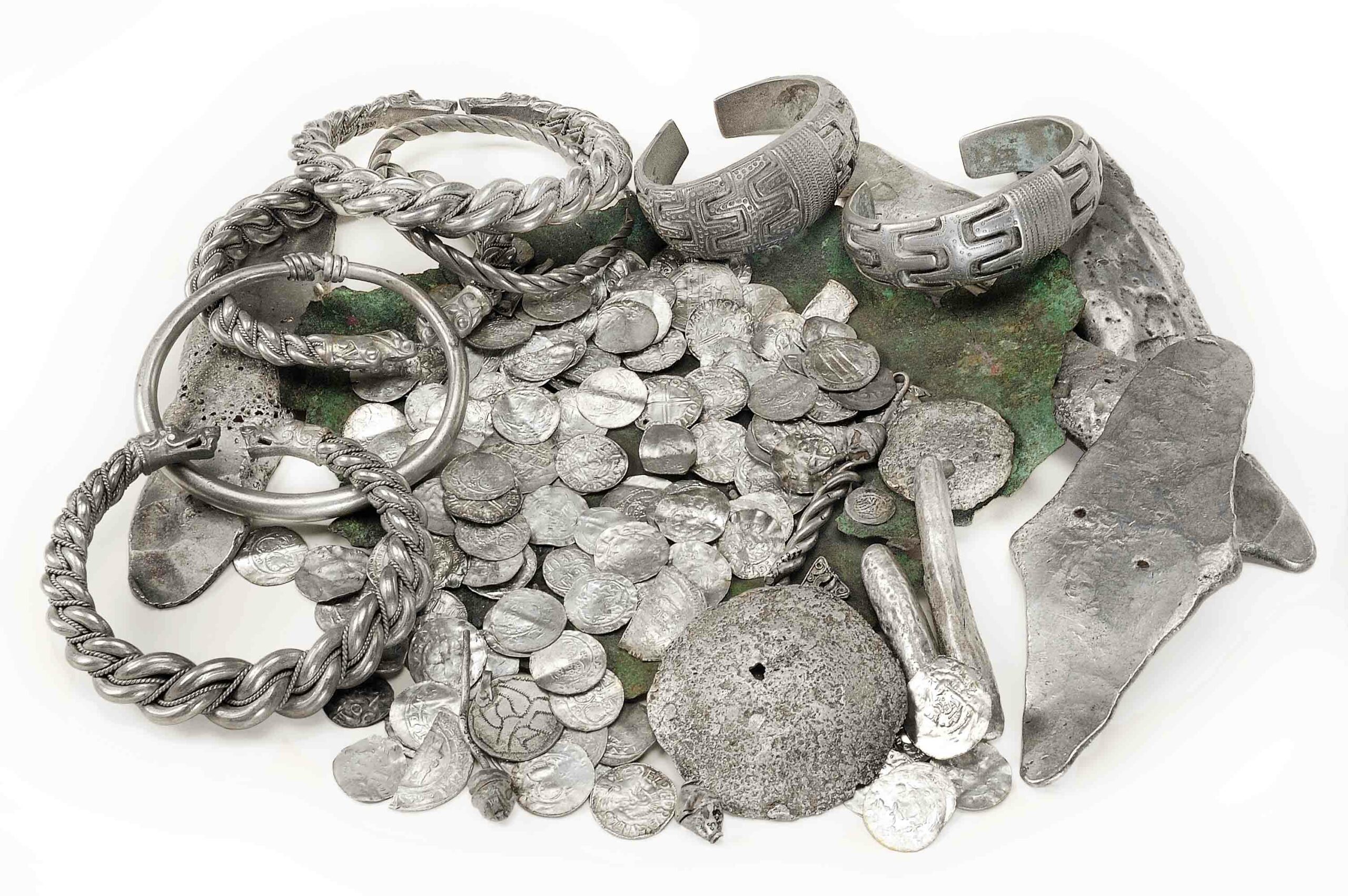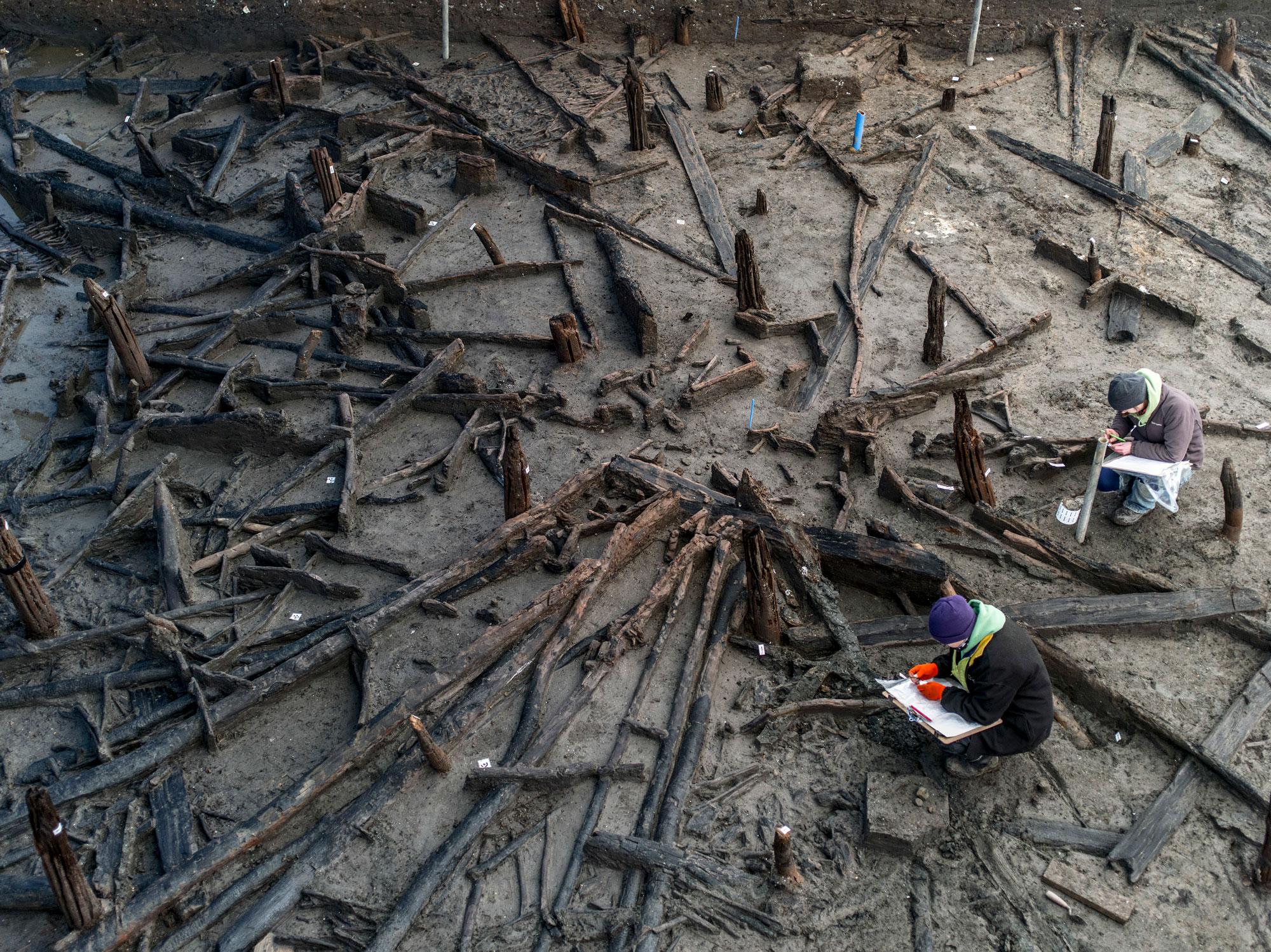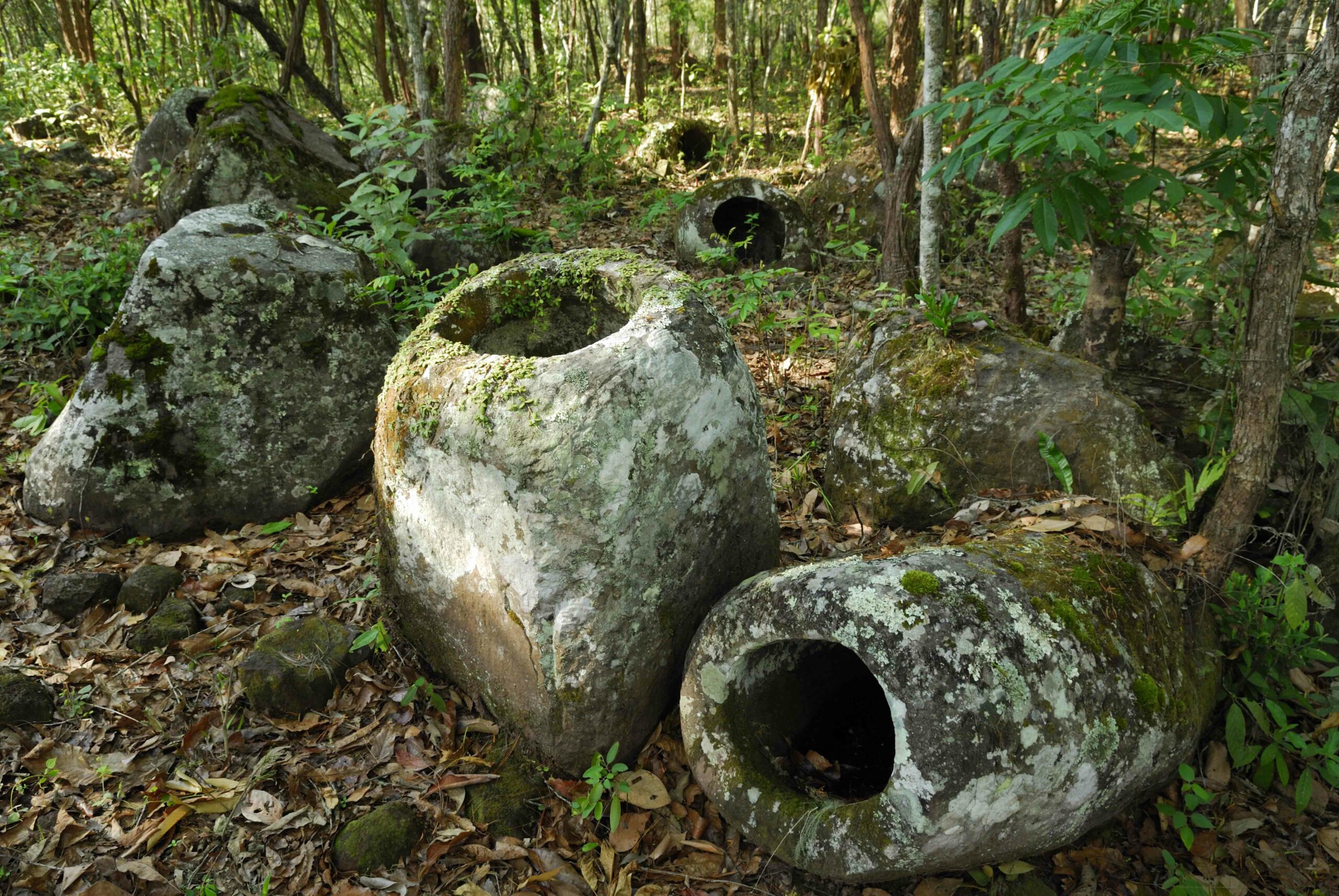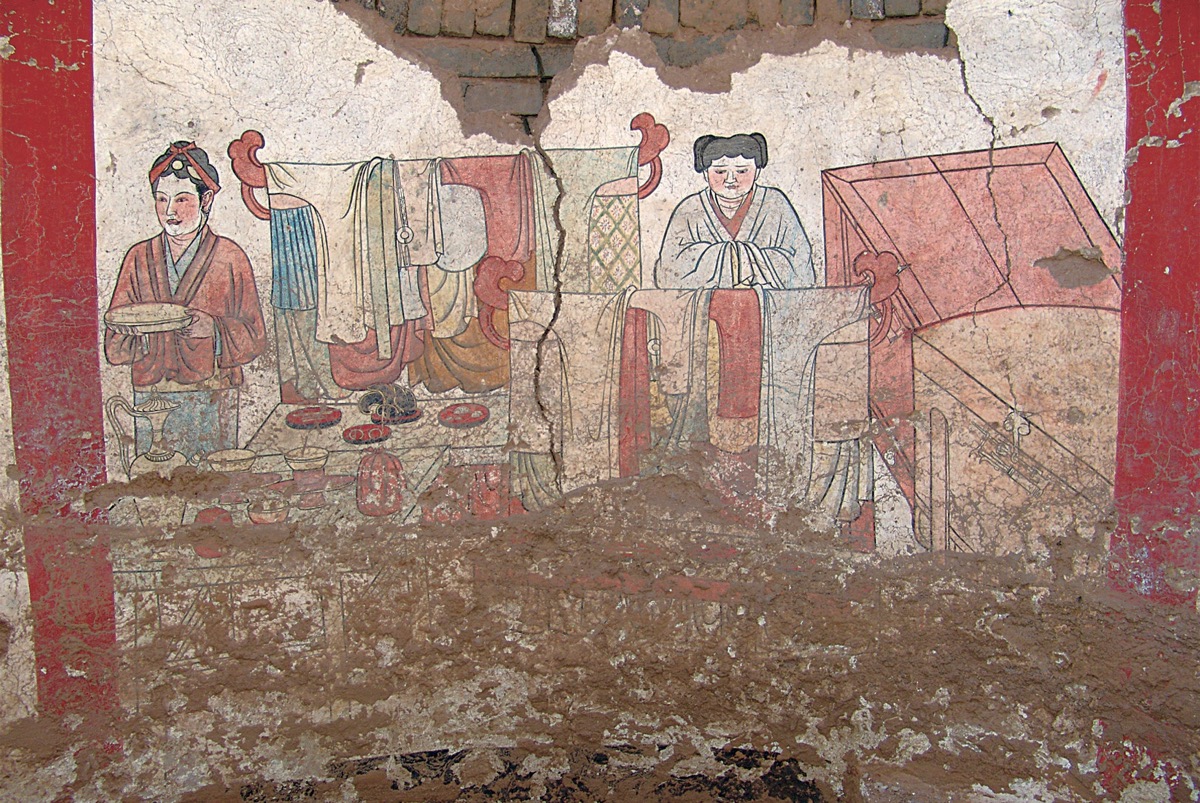
DATONG CITY, CHINA—Live Science reports that a second circular tomb decorated with vivid murals has been excavated by a team from the Datong Municipal Institute of Archaeology. The entrance to the tomb, which is believed to date to the Liao Dynasty (A.D. 907–1125) and was discovered in 2007, had been sealed with bricks, but the archaeologists were able to enter it through a hole in the arch-shaped roof. Once inside, they found ceramics and an urn containing cremated human remains thought to belong to a husband and wife. The walls of the tomb had been decorated with murals depicting servants, cranes, and clothing hanging on stands. The clothing had been painted in shades of blue, beige, yellow, and pink. One of the garments features a diamond-grid pattern outlined in green and yellow with a small red flower in each diamond. Plates holding accessories such as a headdress, bracelets, hairpins, and combs were shown on a rectangular table in front of the clothing rack. For more on archaeology in China, go to “Zinc Zone.”


